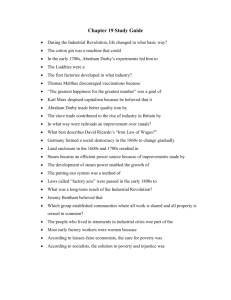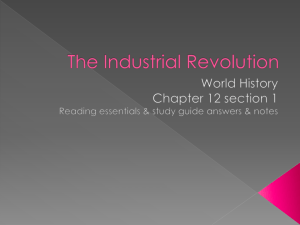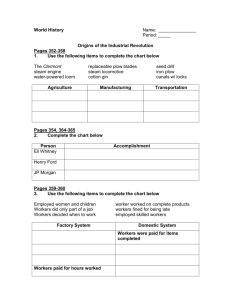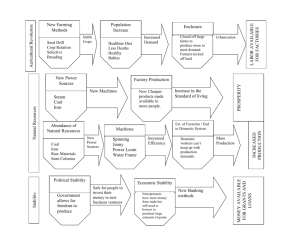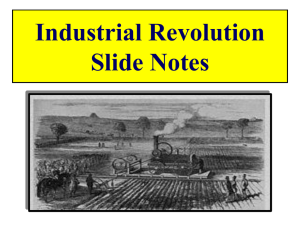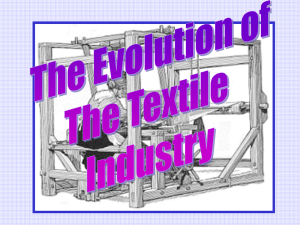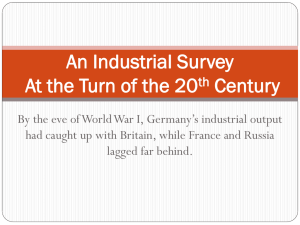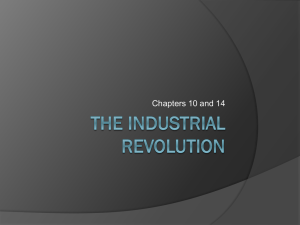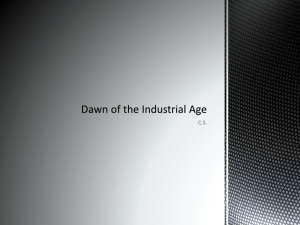Industrial Revolution: Causes, Inventions, & Impacts
advertisement
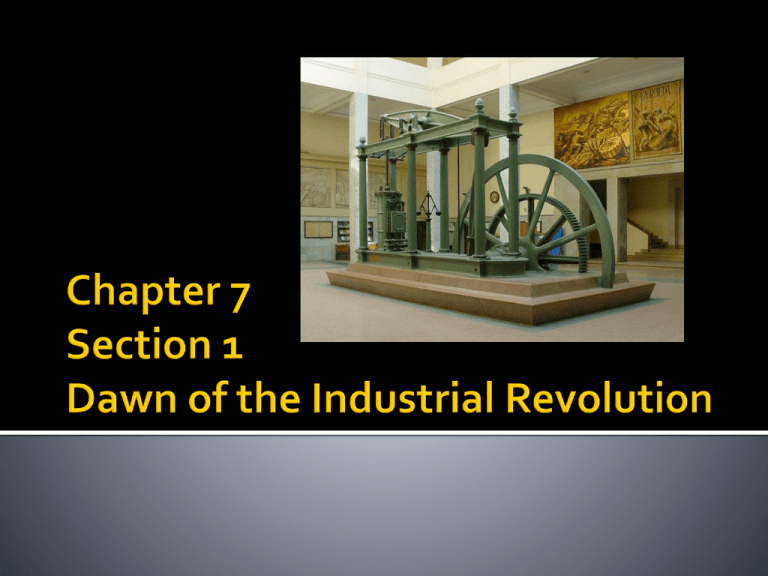
1750s- Most people worked the land using handmade tools and lived in simple cottages. They grew their own food. 1850s-many country villages grew into industrial towns and cities and most people lived where they were able to buy clothing and food that someone else produced. 1830-1850-An American dentist first used anesthetics. The first agriculture revolution was 11,000 year ago when people learned to farm. The second one took place that greatly improved the quality and quantity of farms products. Jethro Tull invented a new mechanical device, the seed drill, to aid farmers. It helped the seeds put in rows rather then scatter them. In the 1500s,landowners had enclosed land to gain more pastures for sheep to increase wool output. Many farm workers were thrown out of work and small farmers were forced out of their land because they couldn’t compete with the large landowners. Villages shrank cottagers left for work. There they formed a growing labor force that will soon tend the machines of industrial revolution. Population increased because it created a surplus of food, people ate better, people had better hygiene, sanitation, and improved medical care. Rapid growth of the population was a result of the agricultural revolution. Britain’s population soared from 5 million in the 1700’s to 9 million in the 1800’s. The population of Europe as a whole shot up from roughly 120 million to about 180 million during the same period. In 1700’s people began to harness new sources of energy. In 1712 a British inventor named Thomas Newcomen had developed a steam engine powered by coal to pumped water out of mines. 1764 James Watt wanted to improve the steam engine in order to make it more efficient. He opened the door not only to operating machinery but eventually to power locomotive and steam ships. Coal was also a vital source of fuel in the production of iron. The Darby family of Coalbrookdale pioneered new methods of producing iron. Darby's experiments let him to produce less expensive and better-quality iron which was used to produce parts for the steam engine.In the decades that followed, high-quality iron was used more and more widely, especially after the world turned to building railroads. Iron Coal
